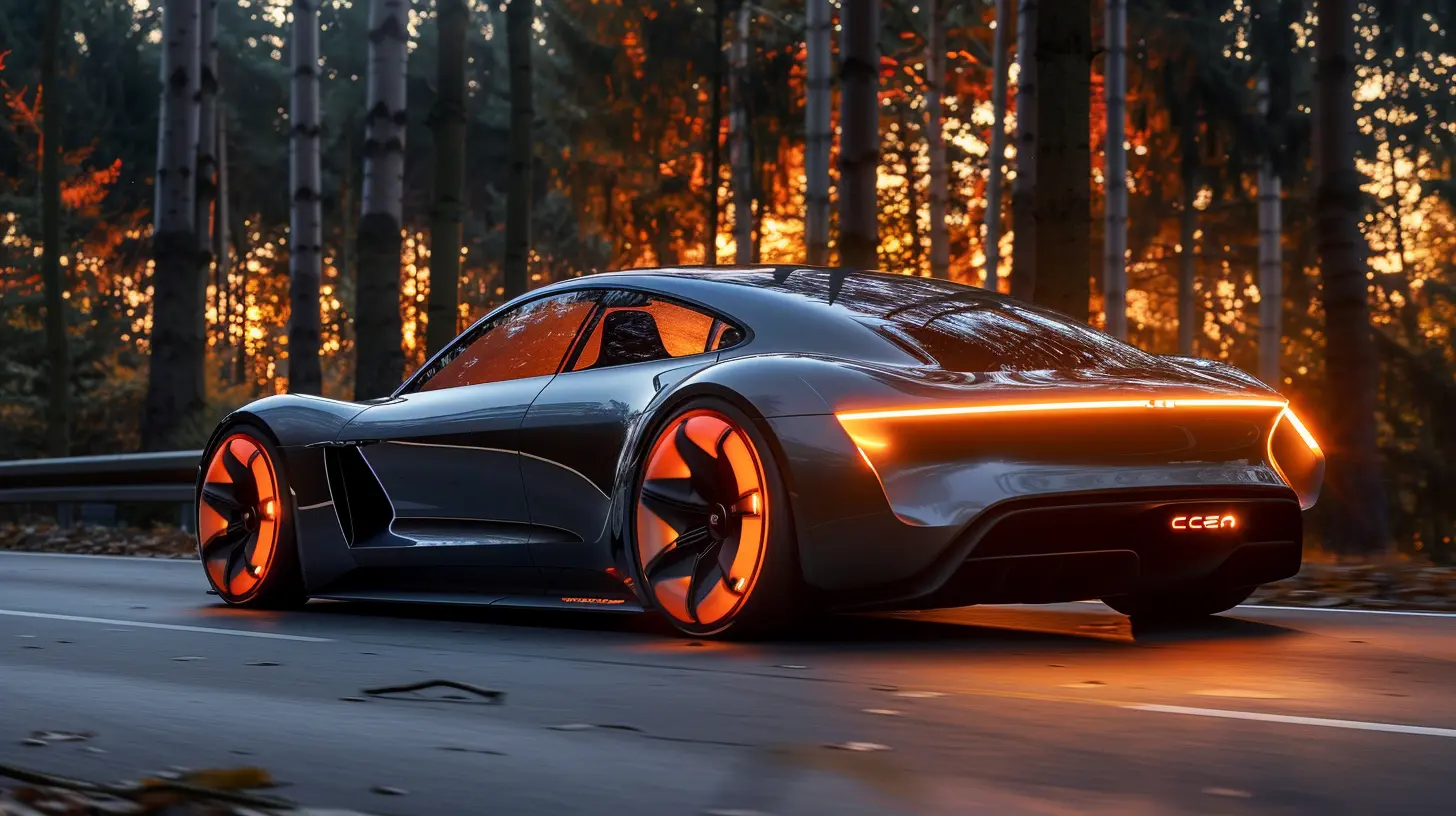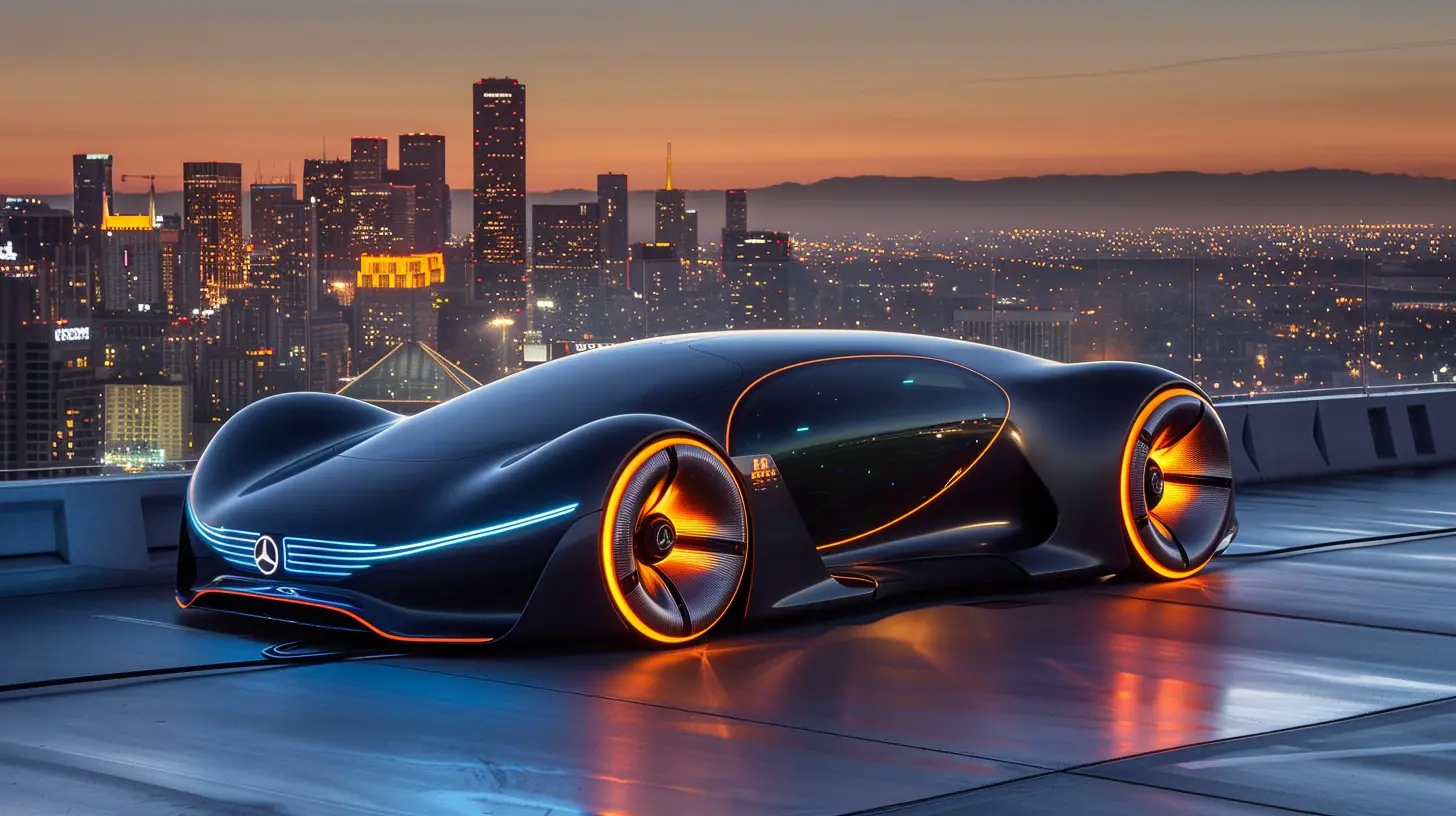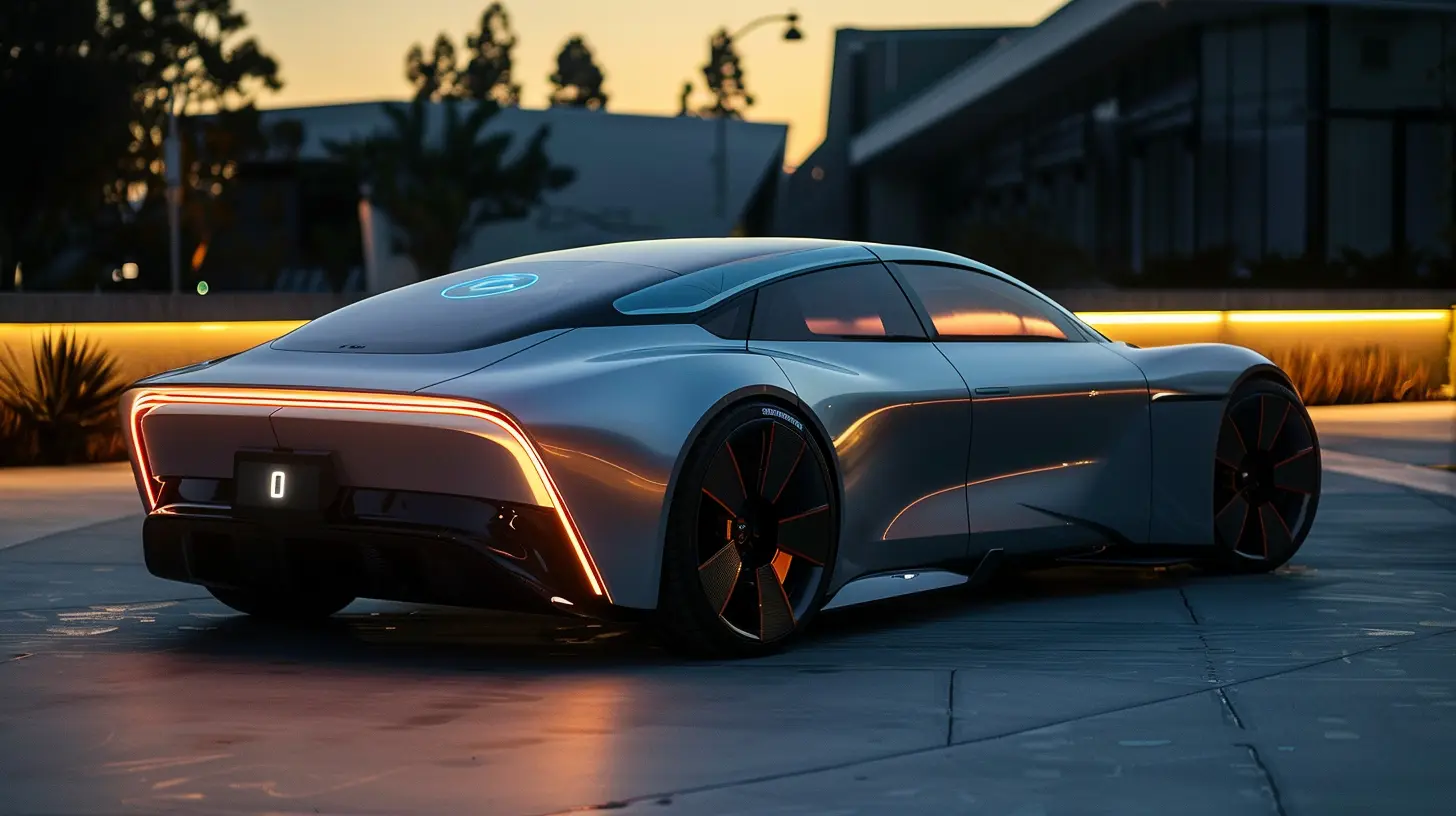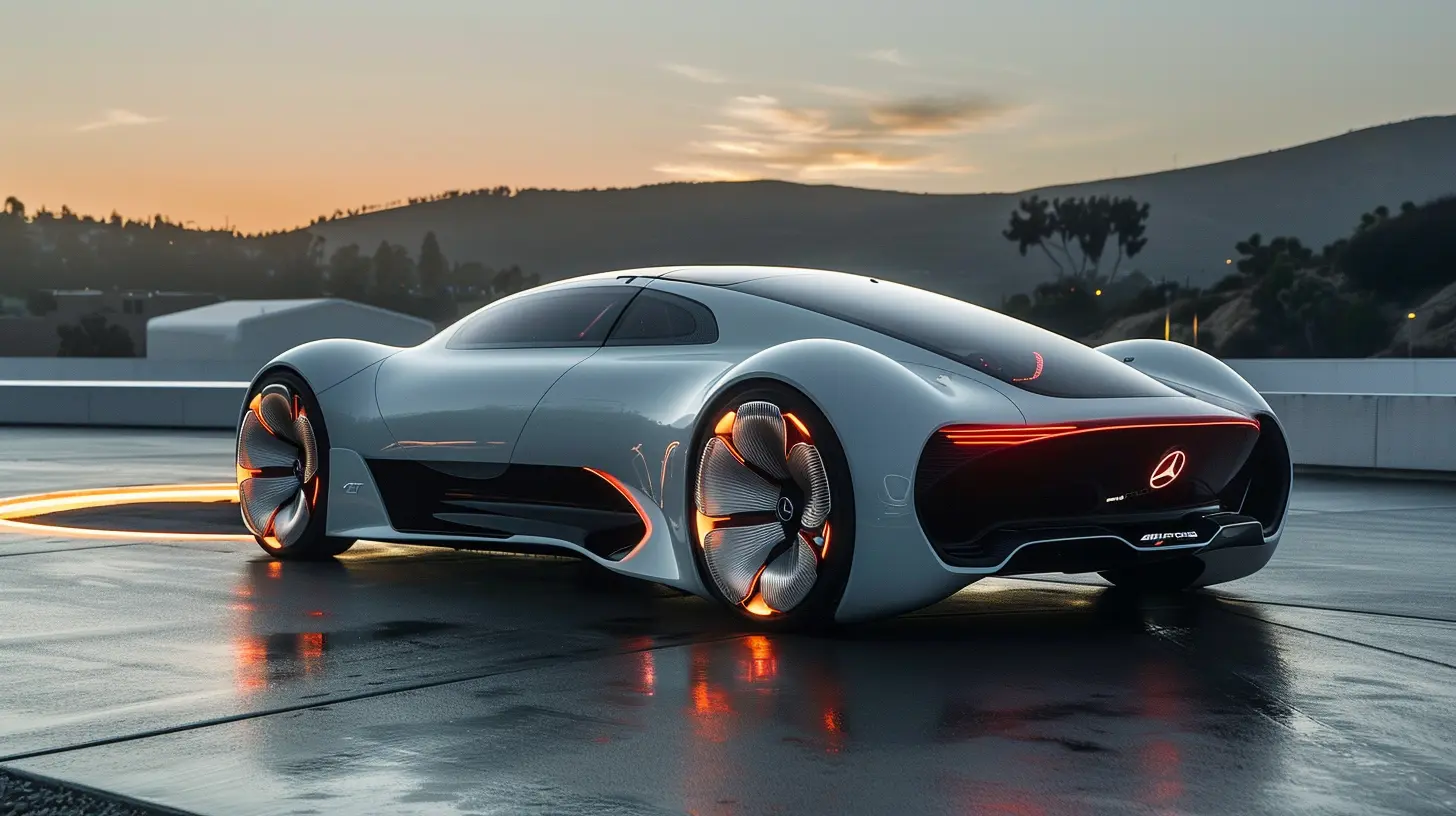How Electric Vehicles Are Driving Innovation
10 June 2025
Gone are the days when electric vehicles (EVs) were just a futuristic fantasy. Today, they're cruising down our streets, silently reshaping not only how we drive but how we live, work, and think about energy. But here’s the real kicker — electric vehicles aren’t just replacing gas guzzlers; they’re turbocharging innovations across multiple industries. Let’s buckle up and take a ride through how EVs are changing the game.

EVs Are More Than Just Cars With Batteries
First off, let’s clear something up. EVs aren’t just traditional cars with a giant battery slapped into them. Nah, they’re part of a whole new ecosystem. Think of them as smartphones on wheels — smart, connected, and packed with tech that’s advancing at lightning speed.Electric vehicles push boundaries in design, engineering, energy storage, and even city planning. As more people ditch fossil fuels, the ripple effect of innovation spreads.

The Tech Under the Hood
Batteries That Pack a Punch
At the heart of every EV lies its battery — and wow, have they come a long way. Lithium-ion batteries are becoming cheaper, denser, and more efficient. Researchers are constantly hunting for the next big thing: solid-state batteries, for example, promise quicker charging, longer range, and zero risk of catching fire.Battery innovation doesn’t just benefit EVs. It spills over into other tech – like how we power smartphones, laptops, and even homes through energy storage solutions.
Regenerative Braking — Energy Recycling On the Go
What if your car could charge itself while slowing down? That’s regenerative braking in action. Instead of wasting energy as heat (like in gas-powered vehicles), EVs catch that energy and recycle it back into the battery. It’s like turning every red light into a mini charging station.Software Upgrades — On the Fly
Modern EVs receive over-the-air (OTA) updates. Yep, like your smartphone. Your car gets smarter, safer, and sometimes even faster overnight, all without visiting a mechanic. Tesla popularized this, but now, many carmakers are hopping on the OTA bandwagon.That means vehicle performance, infotainment systems, and even autonomous features can be enhanced through software — talk about future-proofing your ride!

Charging Ahead: Infrastructure Innovation
Fast Chargers Are Getting Faster
Waiting hours to charge your car? Yeah, that’s old news. Companies are rolling out ultra-fast chargers that give you 80% juice in under 30 minutes. Some are even aiming for 10-minute full charges. That’s less time than grabbing a coffee and a muffin.As charging speeds improve, long road trips in an EV are becoming more practical. And let’s be real — no one wants to sit in a parking lot for an hour just to get 100 miles of range.
Smart Charging Stations
Charging isn’t just about plugging in. Smart stations use AI to predict power demand, manage energy load, and even offer dynamic pricing depending on time and usage. Some even integrate with your home’s solar panel system. Welcome to the age of intelligent energy.Wireless Charging
Yup, like the wireless phone chargers, but for your car. Imagine just parking in your garage and having your car automatically recharge without touching a cable. That’s not sci-fi — it’s in pilot programs already. Wireless charging will change how we think about convenience.
Driving Automation and AI
Self-Driving Capabilities
It’s no accident that EV makers are the ones pushing the hardest into autonomous vehicles. Why? Because the clean, digital architecture of EVs makes it easier to integrate sensors, cameras, and other high-tech systems.Companies like Tesla, Rivian, and Lucid are treating their vehicles like advanced computers rather than traditional cars. Autopilot, lane assist, auto-parking — these features are just the start.
Connected Vehicles
EVs are often part of a broader Internet of Things (IoT) network. Your car chats with your home, your phone, and even the grid. Imagine your EV scheduling its own charge when electricity is at its cheapest or helping reroute your morning commute based on real-time traffic data.EVs and Clean Energy: A Match Made in Heaven
EVs are accelerating the shift toward renewable energy. Unlike gas-powered cars, they can actually work with solar and wind power. Homes with solar panels can feed energy directly into EVs. Some EVs even act as backup batteries for your home, powering it during outages.This synergy is encouraging innovations in smart grids, energy storage, and even peer-to-peer energy sharing. Imagine selling your car’s excess charge to your neighbor!
Sustainability in Design
Recyclable Materials
EV manufacturers are reimagining materials. Think seats made from recycled plastic bottles, dashboards crafted from sustainable wood, and battery components designed for reusability. Companies are pushing the boundaries of green design, taking cues from nature and zero-waste principles.Reduced Emissions Beyond Driving
Sure, EVs don’t spew exhaust fumes, but their positive green impact goes beyond that. Their production process is becoming cleaner, their parts are made with ethically sourced materials, and they’re setting new standards for responsible manufacturing.Impact on Urban Planning and Transportation
Smarter Cities
As EVs rise, so does the need for supporting infrastructure. Cities are installing EV parking spots, charging hubs, and even EV-only lanes. Urban planning is shifting to support low-emission zones, encouraging cleaner air and quieter streets.Additionally, EVs enable real-time data collection, helping city planners optimize traffic flow, reduce congestion, and manage public transportation systems more efficiently.
Shared and Micro Mobility
Not everyone wants to own a car — and that's okay. EV innovation has given life to fleets of shared electric scooters, bikes, and ride-hailing services. These alternatives reduce emissions, free up space, and are perfect for short hops around town.The rise of compact urban EVs also fits perfectly with modern city lifestyles. These mini EVs are easy to park, budget-friendly, and ideal for bustling metropolitan areas.
Economic Ripples and Job Creation
Innovation sparks opportunity. As EV production ramps up, new jobs are emerging — not just in building cars, but in battery development, software engineering, and charging infrastructure. Governments and private sectors are investing heavily in EV tech training programs to build the future workforce.Even traditional automakers are reinventing themselves, transforming assembly lines, updating skillsets, and adopting software-first mindsets. It’s not just a shift in vehicles — it’s a total industry reboot.
The Race to Dominate: Global Competition
Countries are in a tech race to lead the EV revolution. Governments offer incentives, grants, and tax breaks to boost innovation. China, for instance, aims to dominate the EV battery market. The U.S. is doubling down on infrastructure. Europe’s going all-in on emissions reduction. It’s like the space race, but greener — and way more grounded.Competition fuels creativity. As nations and companies try to outdo each other, we all benefit from faster advancements, better technology, and lower prices.
Challenges That Spark More Innovation
Sure, EVs aren’t flawless. There are still issues like charging deserts (places with little infrastructure), battery recycling challenges, and high upfront costs. But here’s the thing — each of these challenges lights a spark for innovation.Startups and research labs worldwide are exploring new battery chemistries, eco-friendly disposal methods, and more equitable access to EVs. Problems aren’t roadblocks; they’re launchpads for breakthrough solutions.
What’s Next for EV-Driven Innovation?
We’re just scratching the surface. The next decade could bring:- Vehicle-to-grid tech: Cars that send power back to the grid.
- Self-healing batteries: Literally fix themselves when damaged.
- AI-powered car diagnostics: Instantly detect and resolve issues.
- Biometric access: Your face or fingerprint starts the car.
- Augmented reality dashboards: Heads-up displays that do more than just show speed.
Every advance in EVs pushes the envelope further, inspiring industries like AI, IoT, robotics, and green energy to step up their game.
Final Thoughts
So, how are electric vehicles driving innovation? In just about every way imaginable. They’re not just transforming the roads — they’re transforming the rules. From energy and design to software and smart cities, EVs are at the epicenter of a tech revolution.It's more than horsepower; it's brainpower. We're watching a shift from raw combustion to intelligent, integrated, and sustainable mobility. And that shift? It's only getting faster.
So if you thought EVs were just about ditching gas, think again. They’re the spark plug igniting the next era of innovation.
all images in this post were generated using AI tools
Category:
Emerging TechnologiesAuthor:

Kira Sanders
Discussion
rate this article
3 comments
Mercy Duffy
This article effectively highlights the transformative impact of electric vehicles on technology and innovation. It’s fascinating to see how advancements in battery technology, software integration, and sustainable manufacturing processes are shaping the future. As EV adoption grows, we can expect even more breakthroughs that will benefit multiple industries and the environment.
June 18, 2025 at 11:02 AM

Kira Sanders
Thank you for your insightful comment! I'm glad you found the article highlights on EVs and their broader impact inspiring. Exciting times are ahead as we continue to innovate!
Foster Phelps
Great article! It's fascinating to see how electric vehicles are not only transforming transportation but also spurring innovation across various industries. From battery technology to sustainable materials, the ripple effects are remarkable. Excited to see where this journey takes us in the coming years. Keep up the good work!
June 13, 2025 at 2:49 AM

Kira Sanders
Thank you for your kind words! I'm glad you found the article insightful. Exciting times ahead indeed!
Bennett Jenkins
Oh sure, because nothing screams "innovation" like a car that’s just really good at being plugged in. Forget rocket science; we're all about that groundbreaking technology of not needing to stop for gas—what a wild ride!
June 11, 2025 at 12:26 PM

Kira Sanders
Electric vehicles are transforming transportation by prioritizing sustainability and efficiency, paving the way for a cleaner future. Your perspective highlights the challenges of embracing change, but innovation often starts with reimagining the familiar.



